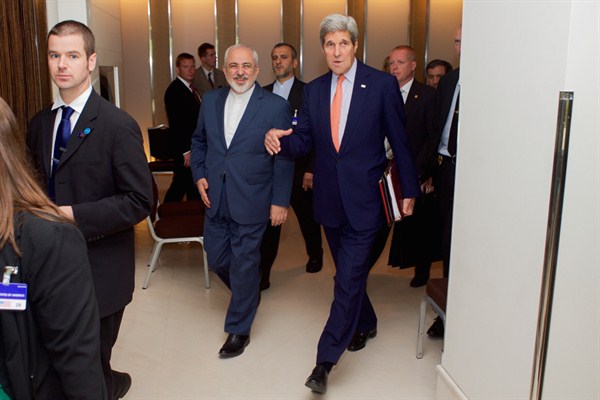In the weeks since the Lausanne talks that set a late June goal for a formal agreement regarding Iran’s nuclear activities, the media coverage and political discourse in the United States have resembled a roller-coaster ride, with some shrieks, thrills and stomach lurches. After an initial bounce of broad approval, with even some important Republican voices and Democratic hawks praising the Lausanne framework deal for securing a more substantial set of commitments from Iran than most had expected, the public conversation has become more volatile now.
The alleged sticking points vary from week to week: Is Iran in compliance with its obligations, even before the final agreement is approved? Or is the show-stopper Iran’s continued support for various anti-Western or anti-Sunni authorities in the region? Was the high-level huddle back in Geneva in late May a reflection of some erosion of the process, and an attempt to get back on track for a mid-year agreement? What if there is no agreement?
It’s important to put the negotiations in context. Of course Iran’s nuclear activities have enormous regional, if not global, security significance in and of themselves. From an American point of view, preventing a nuclear-armed state in the region is the paramount national security interest. But the global community is beginning to explore whether a nuclear agreement, assuming it happens, will be the beginning of a larger process. In the region, this focus on “the day after the deal” is a source of trepidation, and cannot be divorced from all the other turbulence in the neighborhood.

